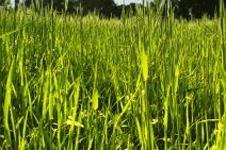Green report says well-built structures can actually improve habitats for wildlife
Buildings can have a positive impact on the natural environment, a report by the UK Green Building Council (UKGBC) suggests.
The result of six months' work by a biodiversity task group, “Biodiversity and the Built Environment” finds that, if done well, buildings can improve wildlife and habitats.
Paul King, chief executive of UKGBC, said that thinking about the environment and building should be inverted: “All too often our mindset is simply to reduce the negative impacts from construction and development. But it's important to think about how we can actually increase positive impacts - for people, wildlife and the economy.”
He said inclusion of green roofs, living walls and good old-fashioned parks and green spaces in our built environment could help developers “give something back to nature”.
As well as positive messages for greenery in the city, the UKGBC report contains:
- Guidance to help the building industry enhance biodiversity in the built environment, including improving staff training and communication
- Recommendations to improve the main sustainability tools, including BREEAM, the Code for Sustainable Homes and CEEQUAL, to better incorporate assessment of biodiversity
- Advice for industry, and for local and central government, on how to improve the consistency of biodiversity measurement and reporting in order to set meaningful targets in the future.
Some 39% of habitats and 27% of priority species and in decline and bird and butterfly numbers have dropped by an average of 6% and 55% respectively in the past 30 years.




























2 Readers' comments